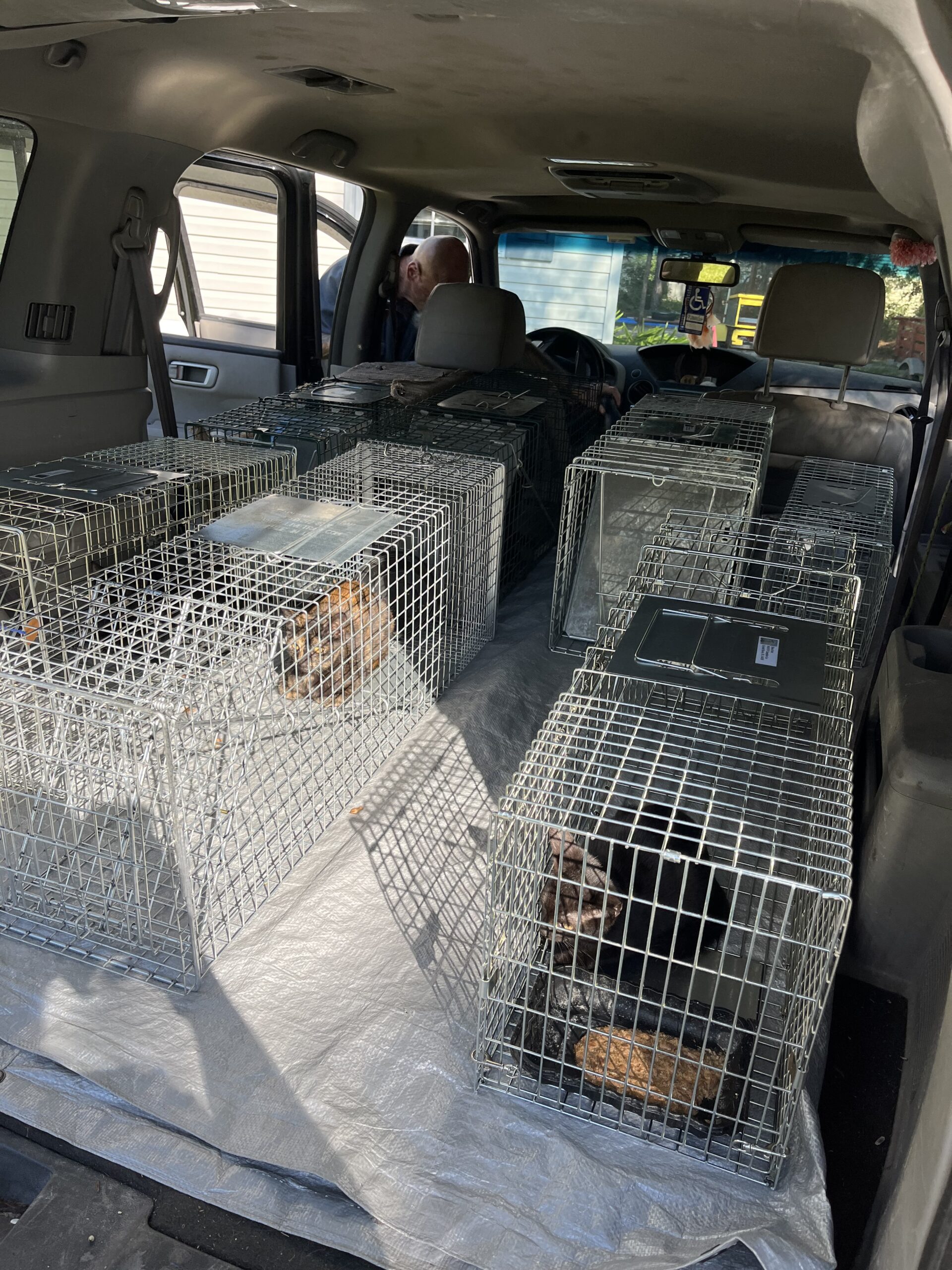TNR education and Resource Page
Stray and Feral cats are a human-made problem. It is not the unfixed cats fault and the issues they present, like spraying, howling and fighting your indoor cats at a window are territorial. This most often dissapears or dissipates within a month of getting the cat fixed.
The responsible and correct way to help yourself and your community is to get these cats spayed and neutered though a TNR service.
We strive to help those who help themselves in being proactive through education and action! Ask us how we can help you.
TNR Trapping and Transport Services – We can assist with the TNR process from start to finish as time, space and donations are available. The cost for each cat is $33.00 unless space is reserved a 4-6 weeks at a farther clinic. We ask for a suggested donation of $50.00 per cat to expenses such as traps, time, and transportation costs such gas costs.
FREE Services: We can also provide FREE of charge verbal help and advice if you choose to do things yourself. We also rent traps with a 100% fully refundable cash deposit of $50.00 if returned within 3 days without damage. Otherwise, Rural King offers a good deal on a 2 pack cage of small (kitten) and large (cat) size.
Tips & Advice on TNR’ing Feral Community cats
Trapping cats the day before surgery.
- If you catch a cat or kitten it is advised to never release them until they are fixed. They become trap shy and might never go into one again.
- The larger the trap always better, placing the trap should be in a bushy area, garage against a wall etc. It is best not to leave it out in the open. Lining the trap is optional but some find it helpful in hiding the trigger plate, be sure it does not interfere with the trap door closing tightly.
- Some cats may require some coaxing into a trap, begin with feeding the cat next to the trap, then zip tying the cage door open. Feed at the entrance and each day you move the bowl a few more inches into the trap. Once the cat is eating at the back of the trap you can set it. Covering a trap with a towel or camouflages of sorts can help mask its appearance.
- Smelly interesting food, canned cat food typically works but other baits include tuna, mackerel, turkey and chicken.
- Once trapped keep the cat is a quiet and dark place until you are ready to transport. Do not engage with the cat as it will frighten it more, put a towel over the trap to prevent sensory overload fear. Never open the door unless you own a professional trap fork. The cats should not eat or drink after 5pm the day prior to surgery.
What happens if you catch a feral kitten?
- Be careful not to be bit, often times it is there first glance at a human and you are the predator. Offer food and water, a calm voice and a few days patience. 99% of the time the kitten will become a sweet ball of love in just 1-7 days. The younger the easier!
- Kittens should be given a wonderful chance at home life. Cats are not meant to be feral. Gainsville’s Operation Catnip offers a wonderful community program for kittens called KSD short for Kitten Shelter Diversion program and will assist fixing the kittens that weigh in between 2 pounds up to 4. They realize people want to do good for these kittens in finding them homes but sometimes those homes do not get them fixed.
- Please home this kitten a deserving home to someone you would trust.



Leave a Reply